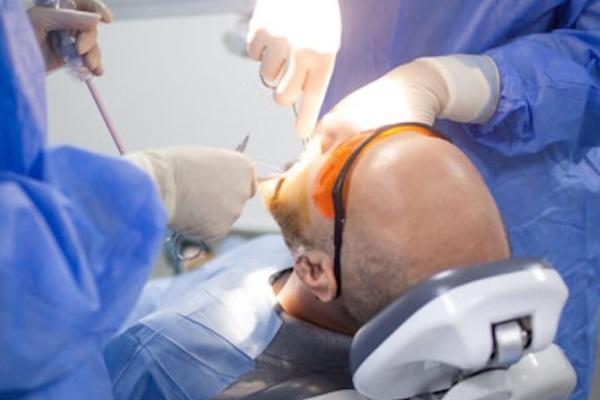According to the results of a prospective randomized clinical trial, patients with affected lower third molars may experience less pain and swelling if melatonin is injected into the tooth socket after surgical extraction.

The authors noted that Although melatonin also affects the degree of maximum mouth opening, this study failed to detect an effect of melatonin on bone healing.
“The results confirm the anti-inflammatory effect of melatonin in reducing the intensity of pain and swelling,” write the authors, led by Shaima Mohsen Refahi, PhD, from the University of Fayoum (Egypt).
Melatonin, a hormone secreted by the pineal gland, has antioxidant and anti-inflammatory properties. In addition to inhibiting the production of active oxidants, it promotes osteoblast differentiation and bone formation, which can potentially limit problems such as intraosseous defects and bone loss associated with the surgical removal of diseased lower third molars.
Although previous studies have explored the effects of systemic melatonin administration in dentistry, there is limited support for topical use of the hormone due to its anti-inflammatory, analgesic, and osteogenic properties.
To evaluate the effects of melatonin, the researchers conducted a randomized, blind study in 38 patients with affected molars in the lower jaw. According to the study, half of the patients received 3 mg of melatonin mixed with 2 ml of hydroxyethyl cellulose gel 2%, which was gently injected into the well, while the other half received a placebo in the form of 2 ml of hydroxyethyl cellulose gel 2%.
CBCT was taken one day after surgery and six months later to measure bone density as a marker of osteogenic activity in the sockets. The authors write that blood tests to measure osteoprotegerin levels immediately, four weeks, and six months after surgery were used to assess bone healing activity.
To assess the anti-inflammatory effect, mouth opening, pain, and swelling were measured before surgery and then one, three, and seven days after surgery. The mouth opening of each patient was measured with a caliper from the incisal edge of the maxillary central incisor to the mandibular central incisor. Pain was measured using a 10-point visual analog scale (VAS), and swelling from the tragus to the corner of the mouth was measured using a measuring tape, they wrote.
There was a statistically significant improvement in maximum mouth opening at day 1 (median = 38.33, SD ± 1.20; p = 0.031), osteoprotegerin levels at week 4 (median = 1.9 [1.4–2.4], p = 0.02) and edema on the third day (median = 14.36, SD ± 0.80; p = 0.003) in those who received melatonin compared with patients who received placebo.
The Generalized Equation Pain Scale, a statistical method that is a semi-parametric regression method, revealed statistically significant melatonin interactions on days 1, 3, and 7. Melatonin reduced pain score on day 1 by -1.69 (95% confidence interval [CI] = -2.4, -0.99; p < 0.001) if all other covariates were held constant. Similarly, melatonin reduced pain score by -2.16 (95% CI = -1.78, -0.77; p < 0.001) at day 7, the authors write.
More studies still needed
The study had several shortcomings, including that, based on previous studies, only a single dose was injected into the tooth socket. dose of melatonin. Therefore, the minimum effective dose could not be established because different doses were not used.
Topical application of melatonin can be considered as a replacement for anti-inflammatory drugs, which can lead to systemic side effects. More research should be done that will focus on the use of a slow-acting melatonin carrier to maintain a constant dose of melatonin throughout the healing period.
In addition to melatonin playing a role in improving maximum mouth opening, the study reveals “an anti-inflammatory effect of melatonin, namely the reduction of pain and swelling,” write Refahi et al.
